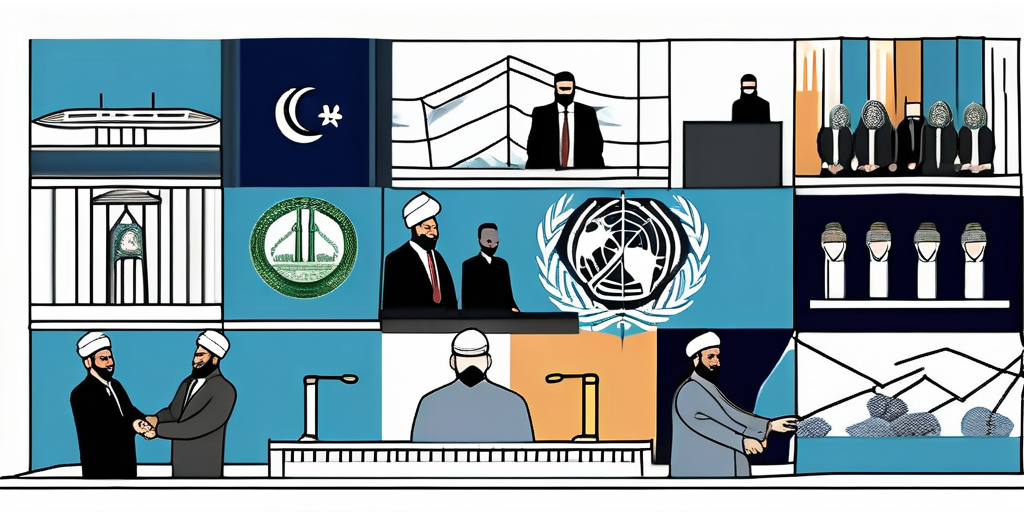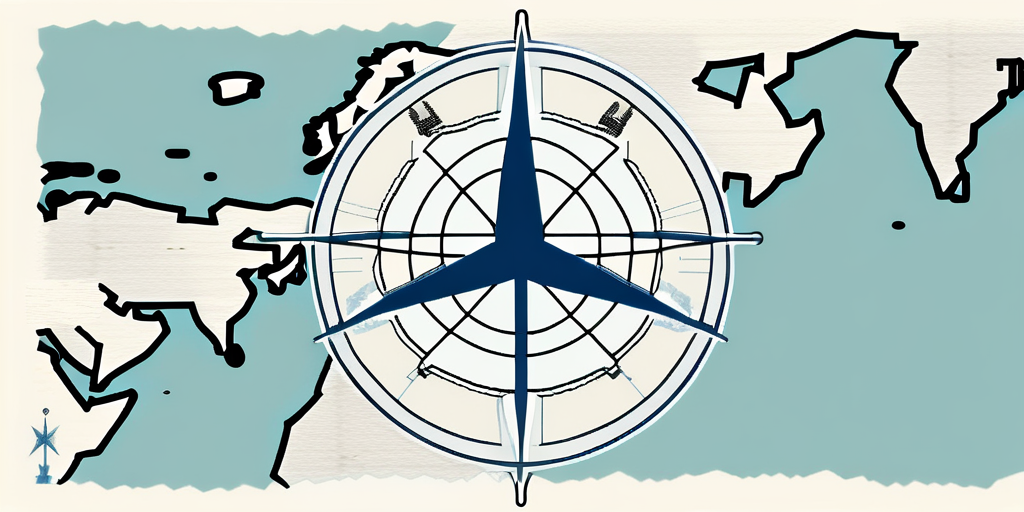Interpol Notices are an essential tool for international law enforcement agencies to communicate and coordinate efforts to apprehend criminals across borders. In recent years, Afghanistan has been placing increasing importance on these notices as part of its global security strategy. This article dives into the intricacies and implications of Afghanistan’s Red Notices, shedding light on the legal aspects, the impact on international diplomacy, and the delicate balance between enforcement and human rights.
Decoding Afghanistan’s Red Notices: A Legal Perspective
Understanding Afghanistan’s Red Notices requires a comprehensive analysis of the legal framework surrounding Interpol Notices. The issuance of these notices follows a strict protocol, and it is crucial to comprehend the implications they carry. From determining the specific crimes that warrant a Red Notice to examining the evidentiary standards, legal professionals play a vital role in navigating the complex web of international law.
Moreover, legal experts are tasked with assessing the validity and accuracy of the information provided in the Red Notices. As Afghanistan increasingly relies on Interpol’s assistance, legal due diligence becomes paramount to ensure that individuals targeted by Red Notices are afforded their basic rights and protections.
Delving deeper into the legal intricacies, it is important to understand the different types of Red Notices that can be issued by Afghanistan. These notices can range from arrest warrants to requests for extradition, depending on the nature of the alleged crime and the cooperation agreements between Afghanistan and other countries. Each type of Red Notice carries its own set of legal implications and procedural requirements, further highlighting the significance of legal expertise in navigating this complex landscape.
Furthermore, legal professionals are not only responsible for understanding the legal aspects of Red Notices but also for advocating for the rights of individuals targeted by these notices. They play a crucial role in ensuring that due process is followed, that the evidence presented is reliable and admissible, and that the rights of the accused are protected throughout the legal proceedings.
As Afghanistan continues to grapple with security challenges and the need for international cooperation in combating transnational crimes, legal professionals are at the forefront of safeguarding the integrity of the Red Notice system. Their expertise and dedication are essential in striking a delicate balance between upholding the rule of law and protecting the rights of individuals, ultimately contributing to a fair and just legal environment.
Behind the Scenes: Kabul’s Global Hunt
Behind closed doors, Kabul’s law enforcement agencies work tirelessly to track down individuals wanted under Red Notices. The international scope of these notices means that Afghanistan’s authorities face a unique set of challenges. Cooperation with foreign governments, extradition proceedings, and diplomatic intricacies are just a few of the hurdles that those involved in the hunt must overcome.

However, it is crucial to strike a balance between the pursuit of justice and respecting the sovereignty of other nations. Afghanistan’s law enforcement agencies must navigate these challenges while adhering to international norms and principles, contributing to a fair and transparent global justice system.
One of the key aspects of Kabul’s global hunt is the intricate web of international cooperation that is required. Law enforcement agencies in Afghanistan must work closely with their counterparts in other countries to share information, coordinate efforts, and ensure a seamless pursuit of justice. This collaboration involves establishing strong relationships with foreign governments, exchanging intelligence, and coordinating extradition proceedings.
Moreover, the hunt for individuals wanted under Red Notices often involves complex diplomatic negotiations. Afghanistan’s law enforcement agencies must navigate the delicate balance of diplomatic intricacies, ensuring that their actions align with international agreements and protocols. This requires a deep understanding of diplomatic norms and the ability to effectively communicate and negotiate with foreign governments.
Additionally, the global hunt poses unique logistical challenges for Kabul’s law enforcement agencies. Tracking down individuals across borders requires meticulous planning, extensive resources, and a deep understanding of international law enforcement procedures. From coordinating travel arrangements to ensuring the safety of officers involved, every detail must be carefully considered to ensure a successful operation.
In conclusion, the pursuit of justice in Kabul’s global hunt is a complex and multifaceted endeavor. Afghanistan’s law enforcement agencies must navigate the challenges of international cooperation, diplomatic intricacies, and logistical hurdles to ensure the seamless pursuit of individuals wanted under Red Notices. By adhering to international norms and principles, Kabul’s authorities contribute to a fair and transparent global justice system, striking a delicate balance between justice and respecting the sovereignty of other nations.
Dramatic Takedown: A High-Profile Afghan Case
Occasionally, Red Notices issued by Afghanistan lead to high-profile arrests that capture global attention. These cases showcase the reach and effectiveness of Interpol’s network and the commitment of Afghanistan’s law enforcement agencies in fighting crime. The successful apprehension of internationally wanted criminals not only brings them to justice but also serves as a powerful deterrent to potential wrongdoers.

However, such high-profile cases also highlight the importance of upholding the human rights of the accused. Transparency, due process, and fair treatment are essential for maintaining the integrity of the justice system and ensuring that justice is served in a just manner.
Balancing Act: Enforcement vs. Human Rights
While the enforcement of Red Notices is integral to enhance global security, it is crucial to strike a balance between enforcement and safeguarding human rights. This delicate equilibrium is especially pertinent in countries like Afghanistan, where the justice system is still evolving and faces its own set of challenges.
Efforts are underway to strengthen legal systems and ensure that the fundamental rights of individuals subject to Red Notices are protected. Cooperation with international organizations, training programs for law enforcement, and capacity building initiatives all contribute to upholding human rights without compromising the effectiveness of Interpol Notices.
Kabul in the International Justice Arena
Afghanistan’s increased reliance on Interpol Notices has placed Kabul on the global stage of justice and security. The successful utilization of Red Notices as a tool for international cooperation demonstrates Afghanistan’s commitment to combating transnational crime and fostering a safer world.

However, in this arena, Afghanistan faces both opportunities and challenges. Engaging in diplomatic discussions and pursuing strategic partnerships with other countries and international organizations are essential for ensuring that Kabul’s interests align with the broader global security framework.
The Ripple Effect: Afghanistan’s Notices on Global Diplomacy
Afghanistan’s use of Interpol Notices sends a message to the international community about its determination to combat crime and hold accountable those who threaten global security. However, these actions also have ripple effects on diplomacy and foreign relations.
As Kabul issues Red Notices, foreign governments may face difficult decisions regarding extradition and cooperation. Balancing domestic interests, the rule of law, and international obligations becomes increasingly complex when Afghanistan’s list of wanted individuals grows.
Moreover, Afghanistan’s actions can raise questions about the effectiveness of international law enforcement and the need for further cooperation to address transnational crime holistically.
Ultimately, Afghanistan’s Red Notices are a reflection of its evolving role in the international justice arena. Navigating the complexities surrounding the issuance and enforcement of Interpol Notices requires a delicate balance that respects human rights while upholding the responsibility to protect global security. Afghanistan must continue to evaluate its approach to Red Notices, engage in international dialogue, and work towards a fair and effective global justice system.
